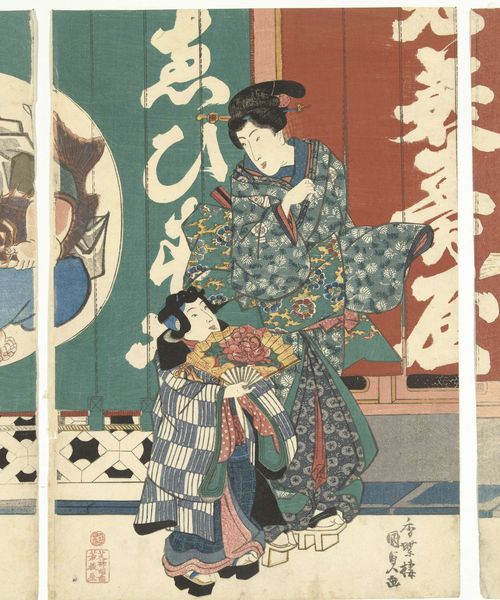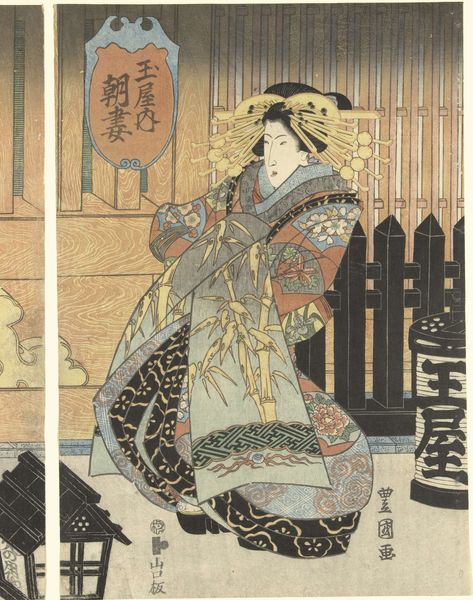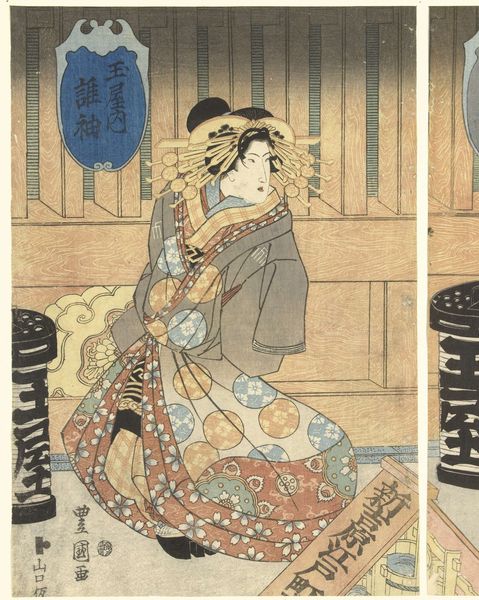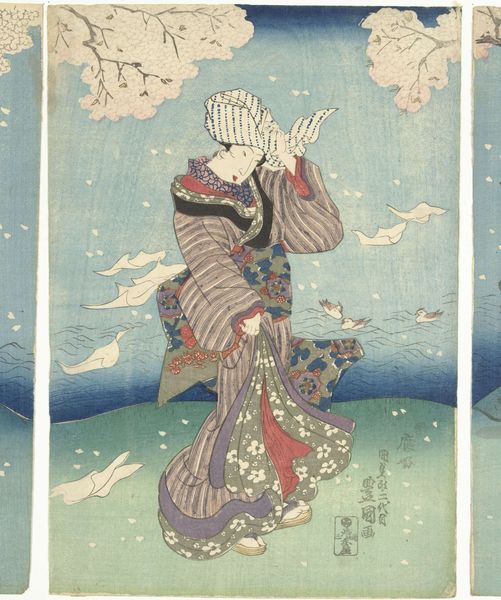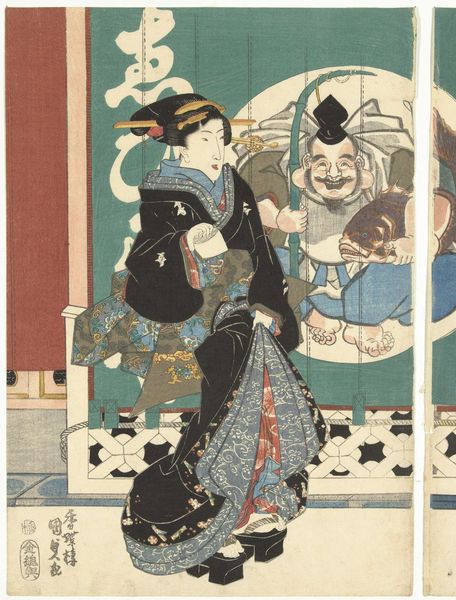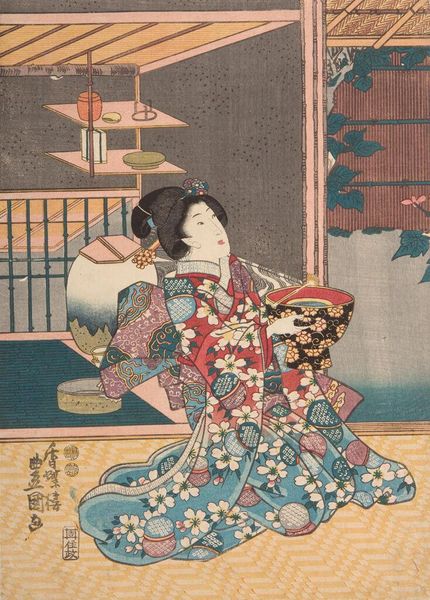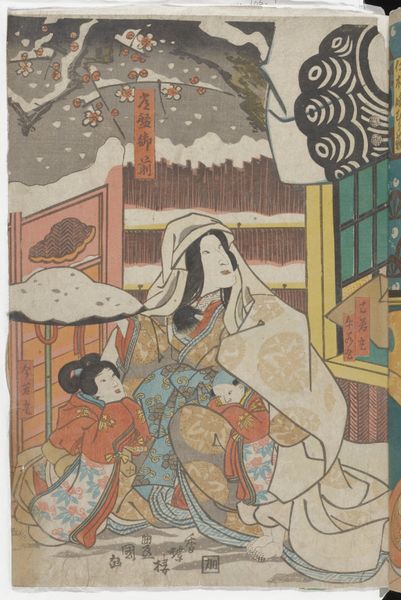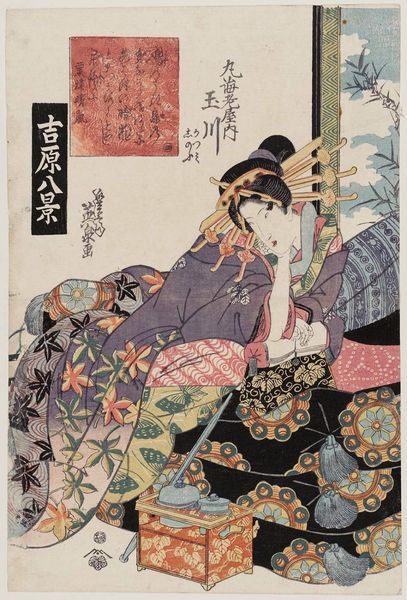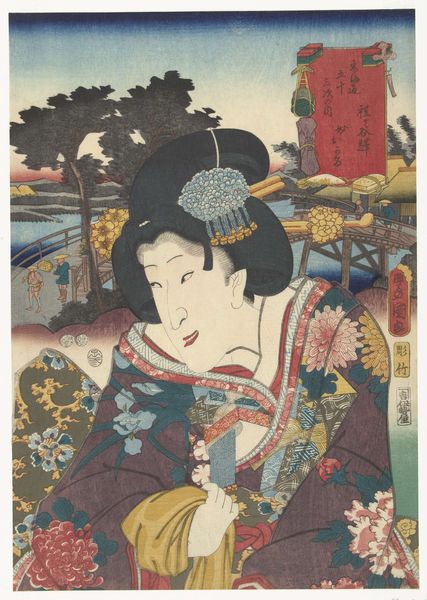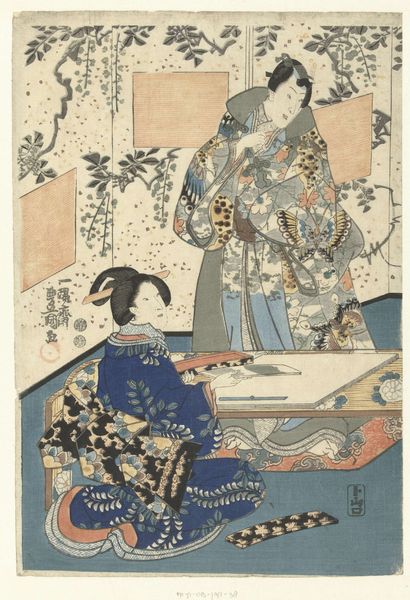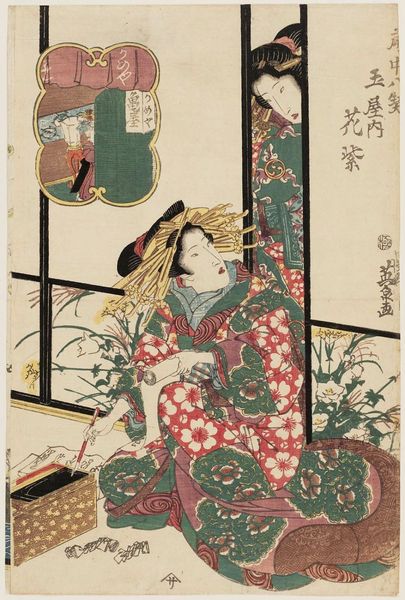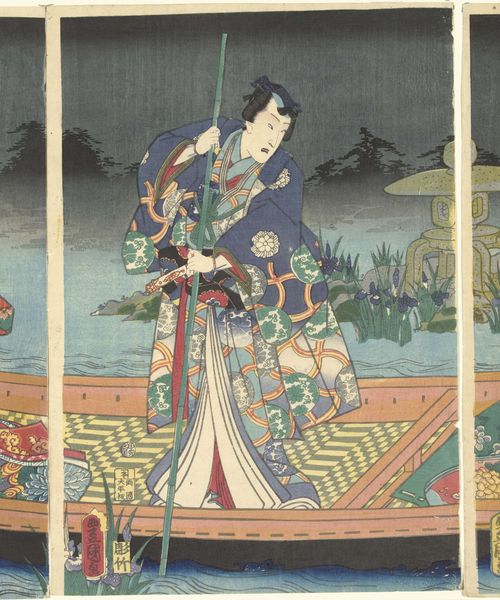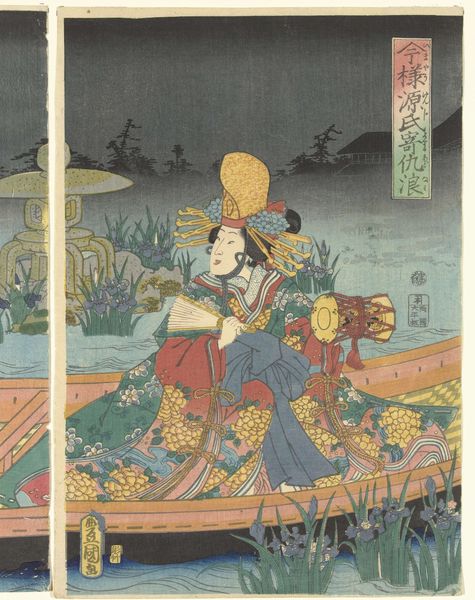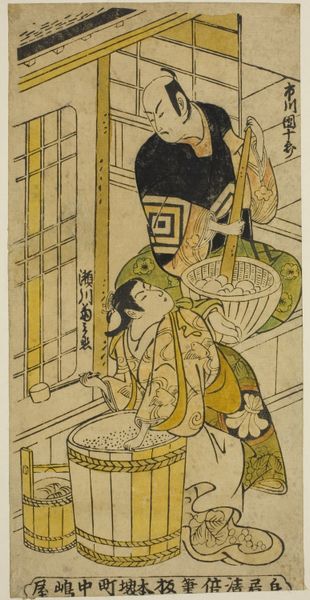
print, woodblock-print
#
portrait
# print
#
asian-art
#
ukiyo-e
#
figuration
#
woodblock-print
#
genre-painting
#
erotic-art
Dimensions: height 367 mm, width 252 mm
Copyright: Rijks Museum: Open Domain
Utagawa Toyokuni II made this woodblock print, titled "Three Courtesans of the Tamaya House," in Japan. Woodblock printing is a relief process, where the areas intended to print are level with the surface, while the non-printing areas are removed. In Japan, the technique called *ukiyo-e*, meaning "pictures of the floating world," developed in the 17th century. Craftsmen would use a key block to carve the main lines of the design, then print a series of proofs. These were passed on to other artisans who would carve the blocks for the different colors. Look closely, and you can see the degree of skill involved in the registration of the blocks: the alignment had to be perfect. The finished print was an inexpensive multiple, widely available. These images were popular because they offered a glimpse into the pleasure quarters of Edo-era Japan. The courtesans were essentially commodified, just like the prints that represent them. The making of the prints reflects this economy. So, when you look at works like this, think about all the layers of labor and material involved in their production. It is an integral part of its meaning.
Comments
No comments
Be the first to comment and join the conversation on the ultimate creative platform.
